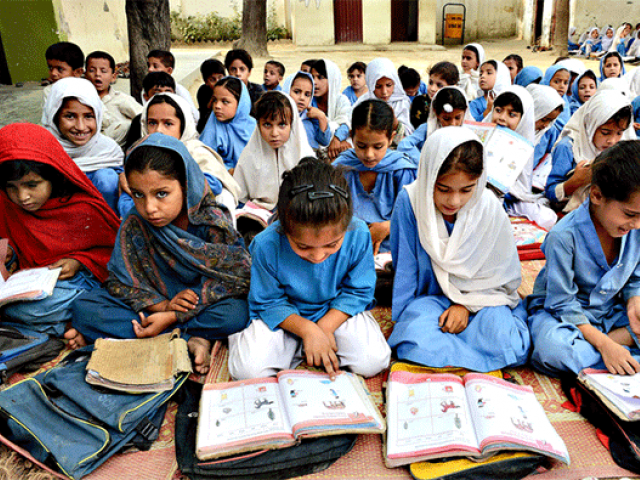Say no to drugs: Anti-drug crackdown ordered at schools across Punjab
Education officers directed to implement, monitor progress in their respective jurisdiction

Education officers directed to implement, monitor progress in their respective jurisdiction. PHOTO: APP
The School Education Department (SED), in a letter issued to all district education officers, has ordered them to strictly implement the ban on drugs in educational institutions and ensure the display of information about the harmful effects of smoking in educational institutions.
“Smoking has been banned in all educational institutions in pursuance of the decisions taken in the 4th meeting of National Narcotics Control Committee (NNCC) held on August 16 to review the implementation of the National Anti-Narcotics Policy, 2010,” states the letter titled ‘Ban of Smoking in Educational Institutions and Display of Harmful Effects of Drugs in Every School’.
The education authorities have directed the EDOs to display the approved slogans for the campaign and asked them to ensure that all public schools display them at prominent places inside educational institutions of the province.
The letter also states the recommended slogans to be affixed or displayed on notice boards at every school: “Say no to drugs”, “Smoking can cause slow and painful death”, and “Smoking is injurious to health”.
According to an SED official, the letter was sent to Education EDOs of all districts in Punjab as part of the anti-drug drive of the government. The EDOs, he added, would be required to implement and monitor the drive in their jurisdiction.
According to the National Anti-Narcotics Policy 2010, the provincial governments are required to assist in implementation of all facets of the policy, including conducting surveys of drug users, encouraging all departments to develop a drug-free society, be a part of the social movement against drugs and support the development of drug-free cities and educational institutions in provinces.
The policy also gives guidelines for developing education policies and curriculums against drug abuse, in which anti-drug messages in text books for schools, colleges and universities would be published.
The guidelines call for developing a model drug-free education institute and promoting extracurricular, sports and other activities at the educational institutions. The policy also requires support of university research and assessment studies on drug abuse.
According to a report on drug use in Pakistan published in 2013, an estimated 6.45 million (5.8%) people aged between 15 and 64 years in the country used plant-based or synthetic drugs, or even prescription drugs for non-medical purposes, in the previous year. The report was a collaborative research effort between Pakistan’s Narcotics Control Ministry, Pakistan Bureau of Statistics and the UN Office on Drugs and Crime.
Last month, the upper house of parliament was informed that a study by a non-profit organisation had claimed that 53% of students at ‘elite private schools’ in Islamabad were drug addicts, based on the findings of a survey of 44 educational institutions. About 8% of students over the age of 16 at model colleges were said to be addicts, while only 1% to 2% of students at public schools were addicts.
Published in The Express Tribune, November 11th, 2016.



















COMMENTS
Comments are moderated and generally will be posted if they are on-topic and not abusive.
For more information, please see our Comments FAQ